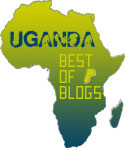A paper I wrote for
Anne Nelson's New Media in Development Communications class last semester was published this week on
DigiActive and reviewed by
Pambazuka News. The abstract:
The proliferation of mobile phones in Africa is transforming the political and social landscape of the developing world, empowering people to source and share their own information and to have a greater say in what comes to international attention. This paper compares the use and impact of mobile technology in three recent African elections: Nigeria, Sierra Leone and Kenya.
In Nigeria’s April 2007 presidential election, a local civil society organization used free software to collect over 10,000 text message reports from voters around the country, boosting citizen participation in a political process many Nigerians doubted. In Sierra Leone’s August-September 2007 elections, trained local monitors used mobile phones to collect data from designated polling sites, enabling the independent National Election Watch to compile and release an accurate, comprehensive analysis of the election almost two weeks before the official report. And in Kenya’s December 2007 election, a group of local digital activists developed and implemented a citizen reporting platform to allow Kenyans to report and track post-election violence during a month-long media blackout, collecting and publishing a comprehensive account of riots, displacement and human rights abuses that serves as one of the best available records of the crisis.
You can read the whole paper
here.
updateKatrin Verclas posted a
critique on MobileActive.org. Many of her comments are spot on, and she sheds valuable light on the role the December 2008 elections in Ghana play in this discussion.
Labels: africa, conflict, digital activism, ICT for development, mobile phones, technology






